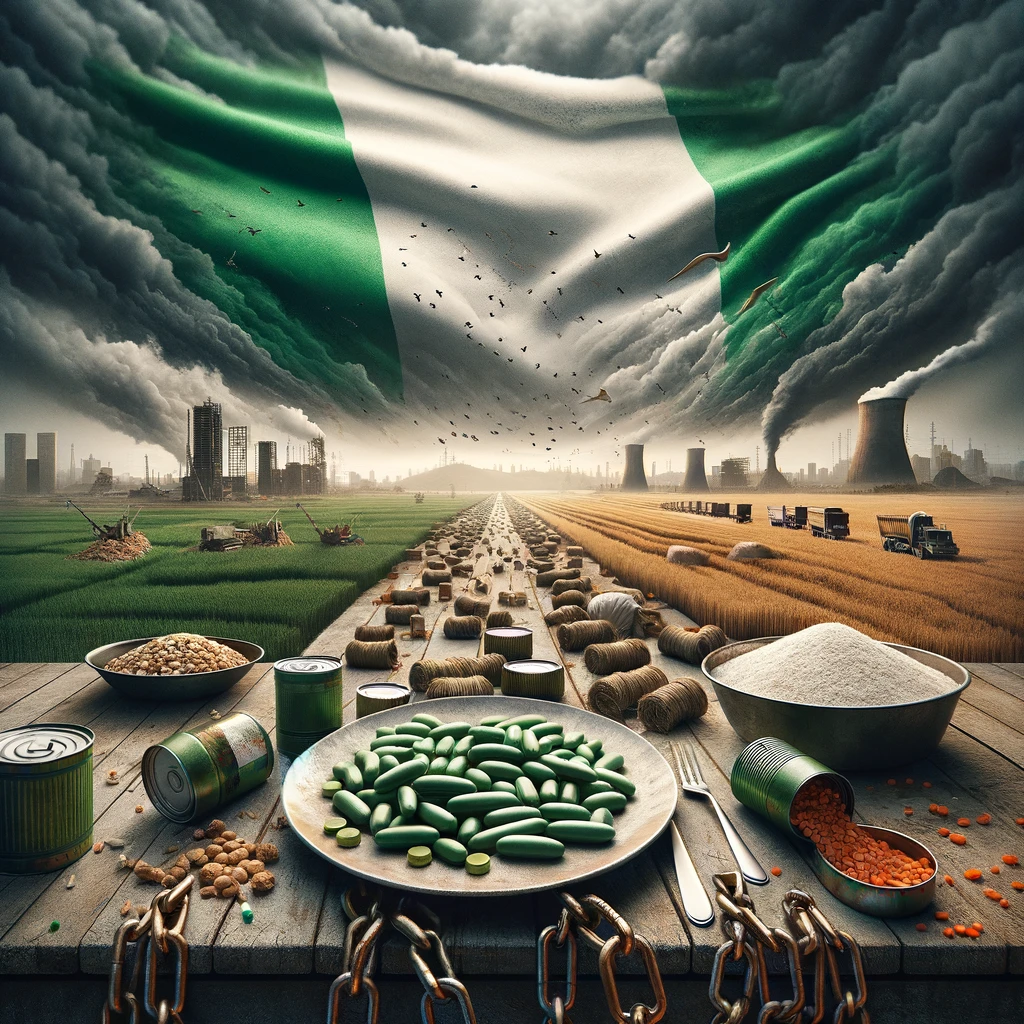Nigeria’s already-fragile peace and order are now threatened more than ever as the nation struggles with food theft spiraling amid an economic crisis. People are on the edge because of the rising cost of living and food prices, which has caused attacks on grain warehouses and increasing violent unrest. This trend shows how bad Nigeria’s economic and security problems are and how quickly efficient solutions are needed.
A Surge in Food-Related Unrest
Recent weeks have seen a spate of attacks on grain storage facilities across Nigeria, signaling a dire level of desperation among its populace. The situation hit a breaking point when a group of angry and hungry people took over a warehouse on the outskirts of Abuja, the country’s capital. This incident shows the critical state of affairs, with the government responding by apparently deploying security forces to protect essential food supplies. But these forces aren’t the best at their jobs, nor are they paid enough to care all that much.
At the same time, there was a terrible panic in Lagos as people ran to buy rice at lower prices, killing several. These events make it clear that a problem is getting worse and goes beyond the current need for food. Distrust in government organizations and adherence to social rules are becoming more widespread.
Nigeria’s Economic Policies and Their Impact on Food Security
The causes of food insecurity in Nigeria, especially in the north, stem from a confluence of factors, including recent governmental choices, long-standing structural problems, and the impacts of insecurity. The agricultural sector has been badly hurt in the north by unrest and criminal activity. Many farmers have had to leave their farms because they were attacked or kidnapped, and others have to pay ridiculously high fees to work their own land. The situation is worse now than it was before the economic changes of last year, which included getting rid of fuel subsidies and devaluing the naira. Because Nigeria relies on road travel and foreign goods, these actions caused the prices of basic necessities, like food, to rise sharply.
The IMF and the World Bank are among the groups that have expressed worry about Nigeria’s rising food costs and the possibility of social unrest. Food prices have gone up at a worrisome rate—more than 35%. Improving food output and making sure farmers are safe have been mentioned as possible ways to lessen the effects of the crisis.
Nigeria’s desire to join the BRICS has also been seen as a way to ease economic problems and increase the country’s power around the world, which makes things even more complicated. Nigeria wants to strengthen its economic and political ties by taking advantage of its many resources and working with other countries that are having similar problems.
With the release of grain from national stocks and crackdowns on food hoarding, the government’s response to the problem has been met with disdain. There have been claims of hoarding and attacks on stores, which has made citizens worry about the safety of private property and the chance of more turmoil. Analysts are worried about what might happen to Nigeria’s society if the delicate balance between keeping order and protecting people’s rights isn’t respected.
Land a High-Paying Web3 Job in 90 Days: The Ultimate Roadmap
